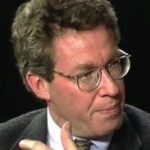One Conspiracy Theory for Another
But all the Mueller report did was replace one conspiracy theory with another involving the Kremlin and its minions that is equally unconvincing.
Remarkably, there's nothing in the Mueller report indicating that the special counselor independently reviewed the forensic evidence or questioned family members and friends. He certainly didn't interview Assange, the person in the best position to know who supplied the data, even though Craig Murray, the ex-British diplomat who serves as an unofficial WikiLeaks spokesman, says the WikiLeaks founder would have been "very willing to give evidence to Mueller" while holed up in the Ecuadorian embassy in London, "which could have been done by video-link, by interview in the Embassy, or by written communication."
Murray says Mueller's team made no effort to contact him either even though he has publicly stated that he met clandestinely with an associate of the leaker near the American University campus in Washington.
Why not? Because Mueller didn't want anything that might disturb his a priori assumption that Russia is the guilty party. If he had bucked the intelligence community finding set forth in a formal assessment in January 2017 that Russian President Vladimir Putin ordered an influence campaign aimed at undermining Hillary Clinton's candidacy it would have been front-page news since an anti-Trump press had already accepted the assessment as gospel. But -- Mueller is far too much of an establishmentarian to do anything so reckless.
So he selected evidence in support of the official theory that "[t]he Russian government interfered in the 2016 presidential election in sweeping and systematic fashion," as the report states on its very first page. And since Assange had consistently maintained that the data was the result of an inside leak rather than internal hack and that "[o]ur source is not the Russian government," he cherry picked evidence to show that Assange is a liar, not only about Russia but about Seth Rich.
Cryptic Exchange
It's a self-serving myth that corporate media have swallowed whole because it serves their interests too. One problem in exposing it, however, is Assange's pledge intrinsic to the WikiLeaks mission to safeguard the identities of whistleblowers who furnish it with information. The upshot has been a good deal of beating around the bush. A month after the murder, the WikiLeaks founder appeared on a Dutch program called "Nieuwsuur" and took part in a cryptic exchange with journalist Eelco Bosch van Rosenthal:
Assange: Whistle blowers go to significant efforts to get us material and often very significant risks. There's a 27-year-old works for the DNC who was shot in the back, murdered, just a few weeks ago for unknown reasons as he was walking down the street in Washington, so...
Rosenthal: That was just a robbery, I believe, wasn't it?
Assange: No, there's no finding, so...
Rosenthal: What are you suggesting?
Assange: I'm suggesting that our sources take risks, and they become concerned to see things occurring like that.
Rosenthal: But was he one of your sources then? I mean...
Assange: We don't comment about who our sources are.
Rosenthal: But why make the suggestion about a young guy being shot in the streets of Washington?
(Note: You can view every article as one long page if you sign up as an Advocate Member, or higher).





